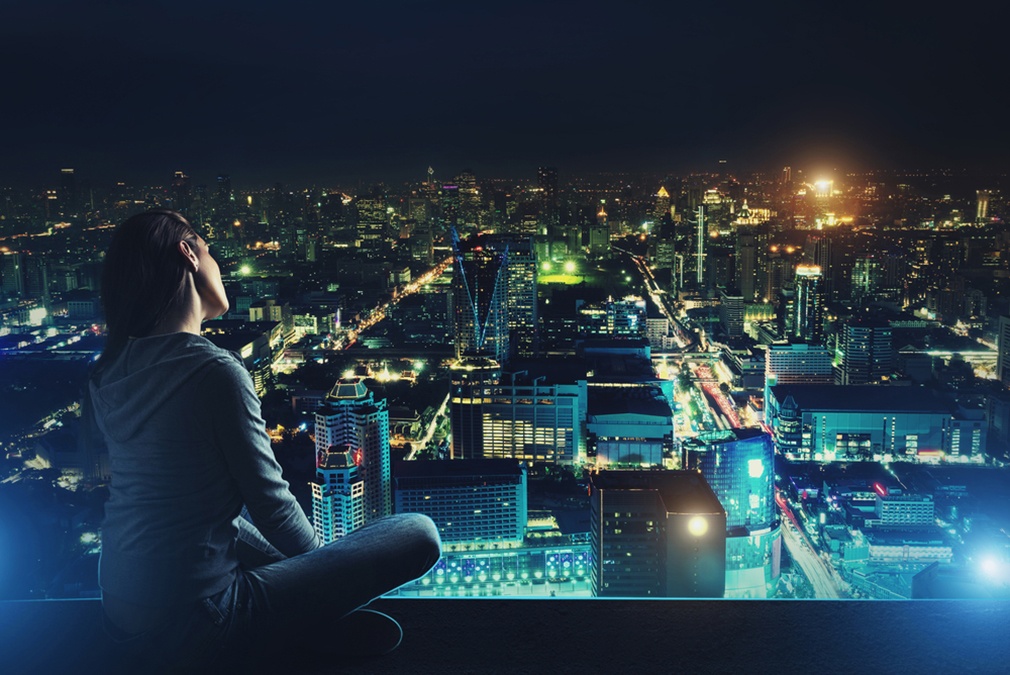 If you’ve suffered insomnia for a while, you’ve probably been advised to avoid TV, computer screens or any other bright light an hour before going to sleep.
If you’ve suffered insomnia for a while, you’ve probably been advised to avoid TV, computer screens or any other bright light an hour before going to sleep.
And maybe you’ve tried to take a bath or listen to calm music or something else to relax in the last hours of your day.
But this may be all for nothing if you live in the wrong street.
And weirdly enough, this can be a problem even if your neighborhood is quiet and seemingly well fit for sleeping. Even if you live in what some call “sleep towns”, it may be causing you to stay up in the night.
In a new study published in the Journal of Clinical Sleep Medicine, South Korean scientists used information from the National Health Insurance Service-National Sample Cohort (2002-2013) to identify 52,027 adults aged 60 and older with available health data.
They used this information to identify those who used one of two hypnotic drugs, zolpidem or triazolam (sleeping pills).
They then consulted satellite mapping of artificial outdoor light obtained from the National Centers for Environmental Information to figure out whether the amount of such lighting was associated with the use of these hypnotic drugs.
They found that 22% of their subjects used one of these drugs to sleep, and that those exposed to the most amounts of outdoor light had substantially more subscriptions to these drugs.
Not only that, but they also used higher daily doses and the duration of their prescriptions were found to be much longer as compared to those with lower light exposure.
From these findings, they concluded that artificial outdoor lighting might cause the sleep disturbances that have become so common in the last few decades.
In essence, these outdoor lights work in the same way as TVs, computers and smart devices, tricking your body into thinking it’s daytime when in fact your body should be getting ready to fall asleep.

 Multiple Sclerosis
Multiple Sclerosis Banishing Bronchitis
Banishing Bronchitis Gum Disease Gone
Gum Disease Gone Overcoming Onychomycosis
Overcoming Onychomycosis Neuropathy No More
Neuropathy No More The Prostate Protocol
The Prostate Protocol Brain Booster
Brain Booster
 Ironbound
Ironbound
 Solution for Shingles
Solution for Shingles
 The Bone Density Solution
The Bone Density Solution
 The Ultimate Healing Protocol
The Ultimate Healing Protocol
 The Parkinson's Protocol
The Parkinson's Protocol
 The Chronic Kidney Disease Solution
The Chronic Kidney Disease Solution
 Overthrowing Anxiety
Overthrowing Anxiety The Fatty Liver Solution
The Fatty Liver Solution The Hypothyroidism Solution
The Hypothyroidism Solution
 The End of Gout
The End of Gout The Blood Pressure Program
The Blood Pressure Program
 The Oxigized Cholesterol Strategy
The Oxigized Cholesterol Strategy
 Stop Snoring And Sleep Apnea Program
Stop Snoring And Sleep Apnea Program
 The Arthritis Strategy
The Arthritis Strategy The Vertigo & Dizziness Program
The Vertigo & Dizziness Program The 3-Step Diabetes Strategy
The 3-Step Diabetes Strategy Hemorrhoids Healing Protocol
Hemorrhoids Healing Protocol The Erectile Dysfunction Master
The Erectile Dysfunction Master Weight Loss Breeze
Weight Loss Breeze The IBS Program
The IBS Program The Insomnia Program
The Insomnia Program The Migraine and Headache Program
The Migraine and Headache Program The Neck Pain Solution
The Neck Pain Solution The Menopause Solution
The Menopause Solution The Ejaculation Master
The Ejaculation Master The TMJ Solution
The TMJ Solution The Acid Reflux Solution
The Acid Reflux Solution The Fibromyalgia Solution
The Fibromyalgia Solution The Psoriasis Strategy
The Psoriasis Strategy